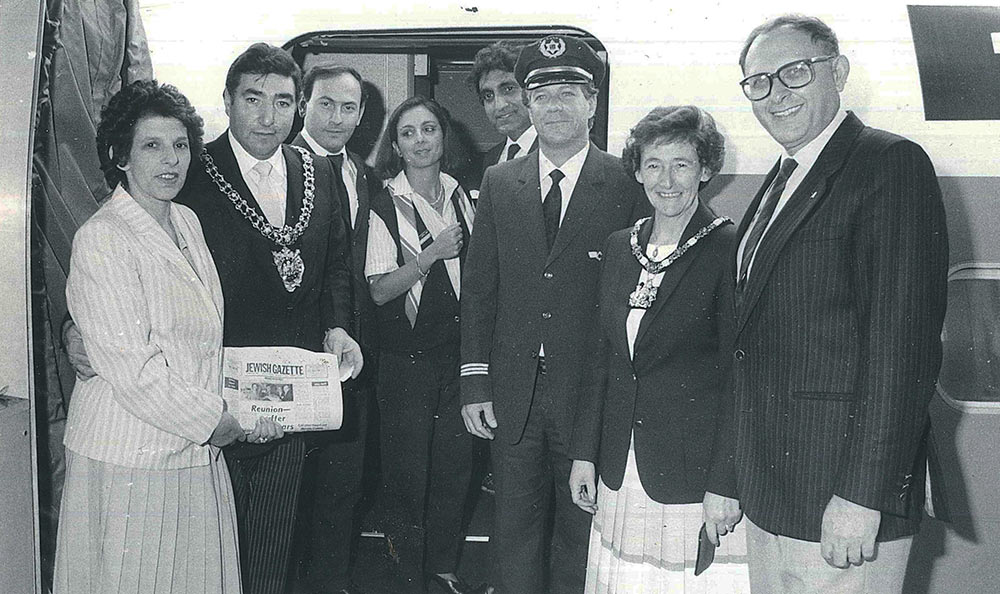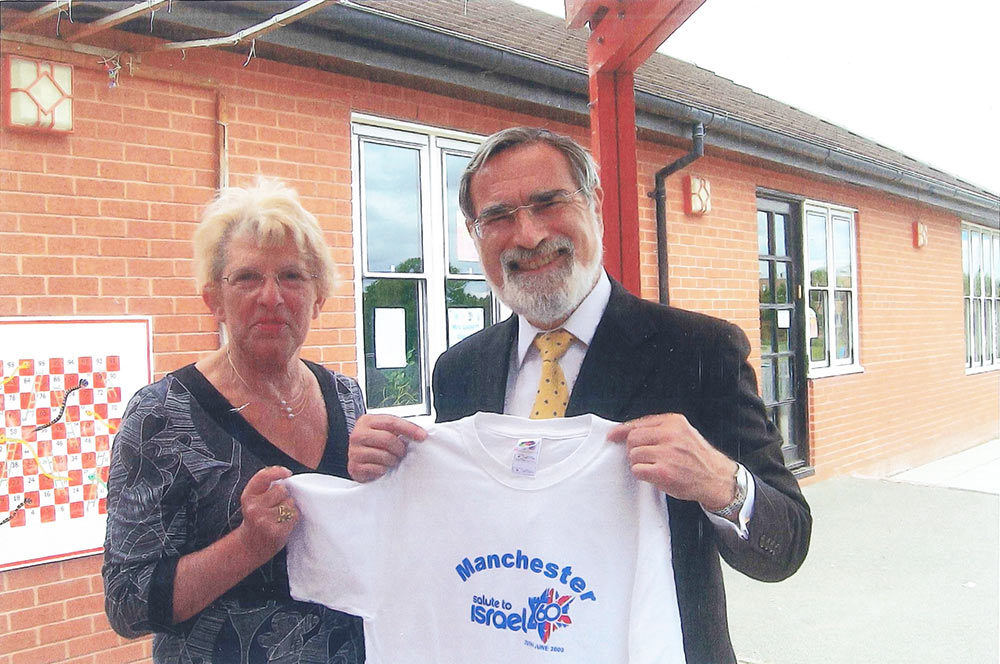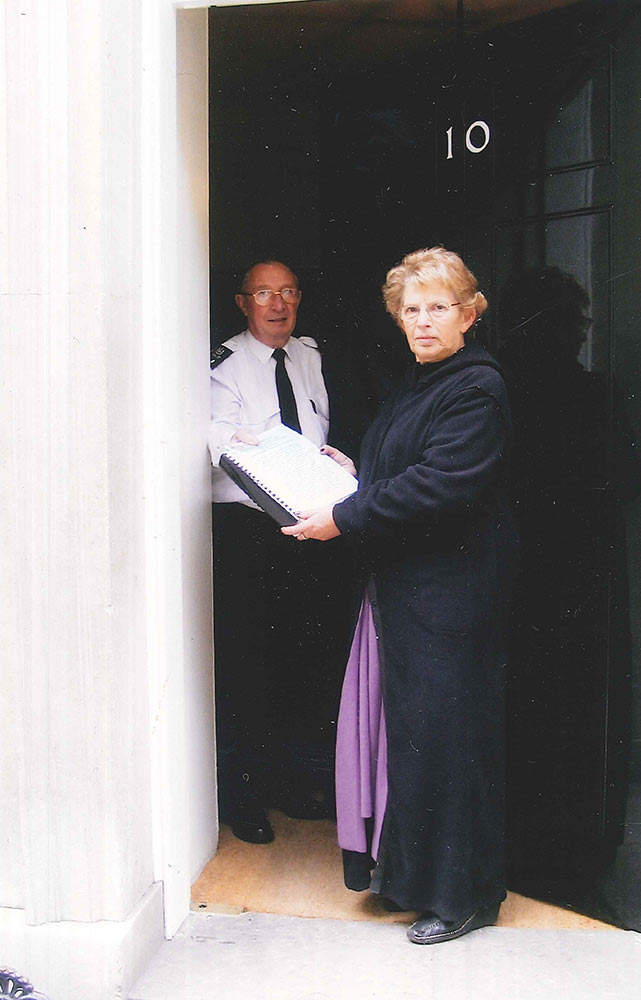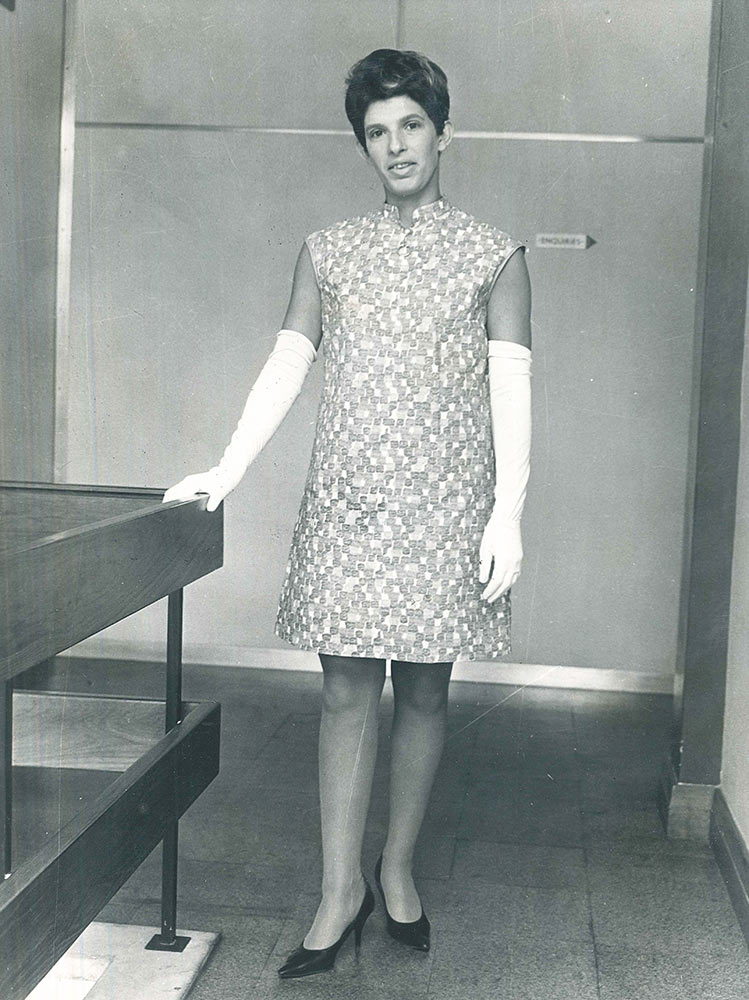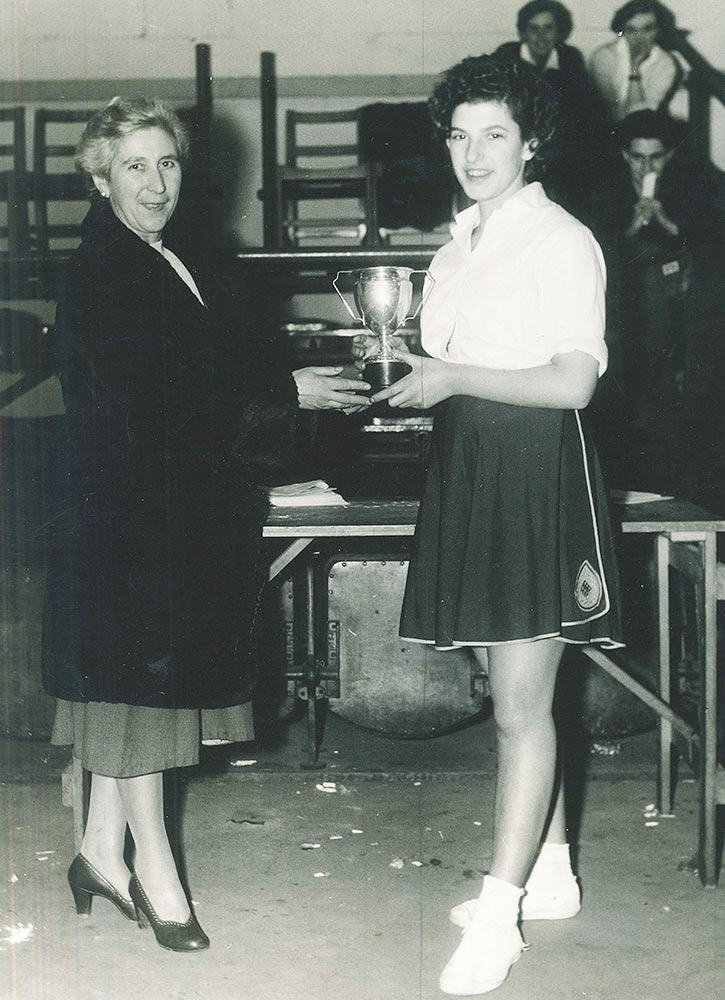Swipe to read
Joy explains her feelings about Manchester Jewish communities.
Read Transcript
“People often think we are sort of cliquey and stick together in mini ghettos. And I always explain that first of all, it’s kind of an entry into feeling a part of something special. Feeling a part of a community and wherever you go in the world. Wherever you arrive, if you find a synagogue … There is always a togetherness of it. I always explain to people that it’s not that we want to be isolated. But in order to be able to live a Jewish life you need to be near to a synagogue, you need to have access to kosher food. And people do tend to gather together. I think that the Jewish community have a good history of integration. I think they came, they wanted to be part of the community. They didn’t want to change things. They actually wanted, not to assimilate but to integrate. And also, to be positive part of the community and being valued. Here in Manchester my experience is that as a community we are valued … I think we are much too divided we are more polarized now … I don’t think there is enough respect between the different types in our community … I can well understand people looking on and thinking what is going on here … we are very, very diverse and don’t always come together and don’t always sit at the same table … I always describe myself as being orthodox with a reform lifestyle. And that really sums me up.”
Joy articulates her feelings towards criticism of Israel.
Read Transcript
“Our worse enemies are some of our own people who portray Israel in a bad light and are very ready to criticize. It’s hard to understand, I find it terrible hard to understand academics and maybe entertainment people or people of that nature, who have become so violently anti-Israel. I find, in some of the universities, the attitudes of some of the professors and how they treat some of their students. It’s just so hard to understand that intelligent people can’t, in my view, see the light. See the reality, see where Israel stands in the world, see what had been achieved in such a short amount of time, see the good that is done and the benefit in terms of medicine and agriculture and the willingness to share it with the world. Israel’s knowledge is so shared with the world … An Israeli team will always be where there is trouble. They are always ready to go and help … The anti-Israel attitude of many countries you can’t find any other reason for it than antisemitism. What other reason is there to hate Israel or be so anti-Israel … There is a difference between being a critical friend, which I think is a useful thing to do. There are a lot of people who don’t like some of the things that the government is doing … There is no country that is perfect … I think you can be a critical friend. I think criticism based on hate and based on lack of understanding is not acceptable. Criticism based on reality and genuine concern is acceptable.”
Joy describes her attitude towards Israel.
Read Transcript
“As you can tell from our conversation, I am fanatically involved in Israel. Fanatically involved, I admit it. I think I can be objective. I think I know when things are going wrong, and when I wished Israel wasn’t behaving the way it is, but I will defend it to the hilt. And I will do whatever small bit I can. There are an awful lot of us who feel as I do and are willing to fight for it and work for it and try to improve it. There are others who are disinterested, they aren’t anti or pro, they are totally disinterested. Huge amount of apathy, about most things these days … I’m British through and through and I don’t feel I have got dual loyalties.”
Joy explains her Jewish identity.
Read Transcript
“I have done a lot of community work … a large part of my life but no regrets. Because I think whatever you do for the community you get back in spades. You really, really do. You get so much more out of it. And I’ve been lucky … My Jewishness is probably the most important part of my life. It’s unthinkable that I, I mean I have non-Jewish friends, I have always had non-Jewish friends, I move in a non-Jewish environment … but the Jewishness overall is the most important factor in what my life is all about … My Jewishness, I’m not overly observant. But there are certain standards that I keep to retain the importance of my Jewishness. I am very, very involved in a lot of Jewish organisations … It’s the very essence of my being. I can’t describe it any other way. I can’t imagine being different. I can’t imagine being away from the Jewish way of life, being away from the synagogue and all the other organisations.”
Joy describes the changes in her work in Zionism.
Read Transcript
“It’s become much more demanding. It’s become much more needing to try and change things to a degree. Needing to try and educate. My early days were very straightforward, we were just serving the community with activities that promoted Israel and were interesting. We’d have an archaeologist, or we’d have visiting speakers … but it was kind of a service of bringing speakers and having activities and getting involved. And as things have got more difficult for Israel, it’s become more demanding on the need to try and change perceptions and to be more actively involved … it’s got more and more frustrating … I don’t want to retire and quit. I sometimes question the value of if we are getting anywhere. But I feel we have to carry on regardless. If I have to choose how I spend my time it’s mostly on the computer, on Facebook or tweeting just to try and make a drip of a difference. That’s all it is.”
